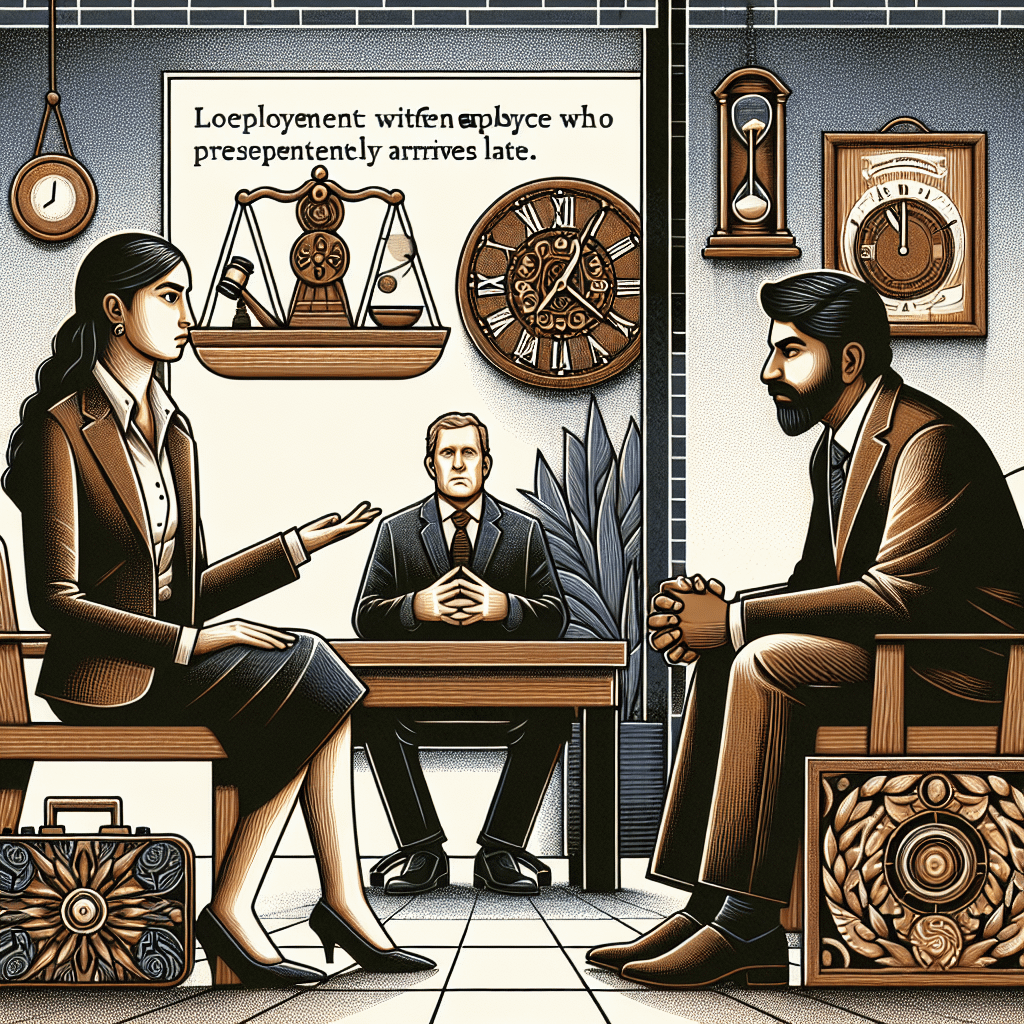For many businesses, punctuality is a key expectation, and managing employees who frequently arrive late can be a tricky aspect of running an organization. You might be wondering if it’s within your rights to terminate someone’s employment based on tardiness. Let’s explore this topic and see how you can handle such a situation legally and fairly.
Setting Clear Expectations
First and foremost, it’s crucial to ensure that your attendance and punctuality expectations are clearly outlined and communicated to all employees. Typically, these are stated in an employee handbook or a company policy document. Detailing what is expected, as well as what constitutes late arrival and the consequences for repeated tardiness, forms the foundation for any disciplinary action you might take.
Documenting Incidents
If an employee consistently arrives late, documenting these incidents is an essential step. Create a record of the dates and times the employee was late, any reasons provided, and how these incidents were addressed. Documentation can serve as evidence that the employee was aware of their tardiness and that you have made attempts to rectify the situation before considering termination.
The Importance of Progressive Discipline
Progressive discipline is a method often used in employment situations where an employee’s undesirable behavior is addressed through increasingly serious measures. This might start with a verbal warning. If the behavior continues, it could escalate to a written warning, and finally, if there is no improvement, termination might be considered.
Having a clear progressive discipline framework can protect you legally, demonstrating that you made efforts to correct the behavior before deciding to terminate the employment.
The Role of Employment Contracts and At-Will Employment
If your employee is working under a contract, it’s important to check the terms regarding termination. Some contracts specify conditions under which employment can be terminated — such as consistent tardiness. If you’re in an “at-will” employment state, you can generally terminate an employee for any reason, including tardiness, as long as it’s not discriminatory or retaliatory.
However, even in at-will states, having a fair and clear process can help avoid claims of wrongful termination. It’s about ensuring transparency and fairness regardless of the flexibility you might have under at-will employment laws.
Reasonable Considerations and Accommodations
Before progressing to termination, consider if there are any underlying issues contributing to the tardiness. Sometimes, external factors such as childcare responsibilities or health issues can be the cause. It might be appropriate to discuss possible modifications or accommodations, such as adjusted start times or flexible scheduling, especially if these issues are protected under local discrimination laws or the Americans with Disabilities Act (ADA).
Consulting with HR or Legal Counsel
Especially in complex cases, or if you’re unsure how to proceed, consulting with your HR department or a legal professional can ensure you’re on solid ground. They can provide guidance tailored to your specific situation and help mitigate any potential legal risks.
Practical Tips for Employers
- Be Proactive: Discuss tardiness as soon as it becomes a pattern. Delaying this conversation can allow the issue to escalate.
- Remain Consistent: Apply your punctuality policy uniformly across all employees to prevent allegations of favoritism or discrimination.
- Keep Communication Open: Engaging with employees to understand the causes of their late arrivals can often lead to a mutually agreeable solution without having to resort to termination.
- Review and Update Policies Regularly: As businesses evolve, so should their policies. Regularly review and update your employee handbook or policy documents to reflect current practices.
In essence, while you can potentially terminate an employee for repeatedly coming in late, doing so within a framework of clear expectations, documented procedures, and fair and consistent application of rules helps prevent legal repercussions and can often lead to a better outcome for both parties. After all, effective communication and understanding should be at the core of employer-employee relationships.








